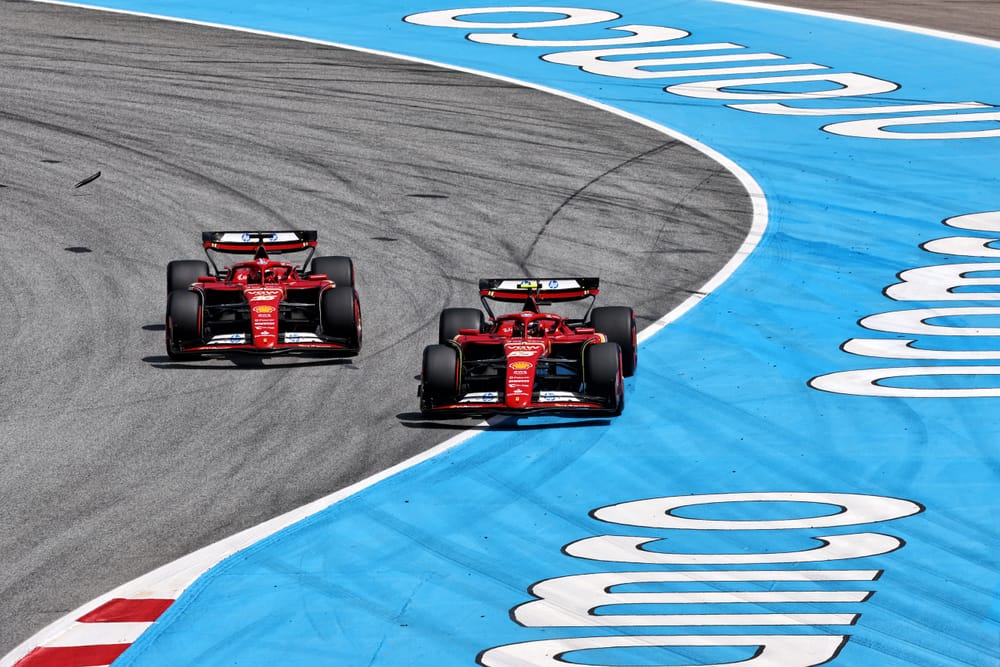Up Next

McLaren Formula 1 driver Lando Norris was quick to hold up his hands and say he lost a Spanish Grand Prix victory that Max Verstappen and Red Bull swept up.
Is Norris right to kick himself? Where did he lose the race? And what does it mean for the rest of 2024?
Here's what our writers think...
Russell thwarted Norris
Glenn Freeman
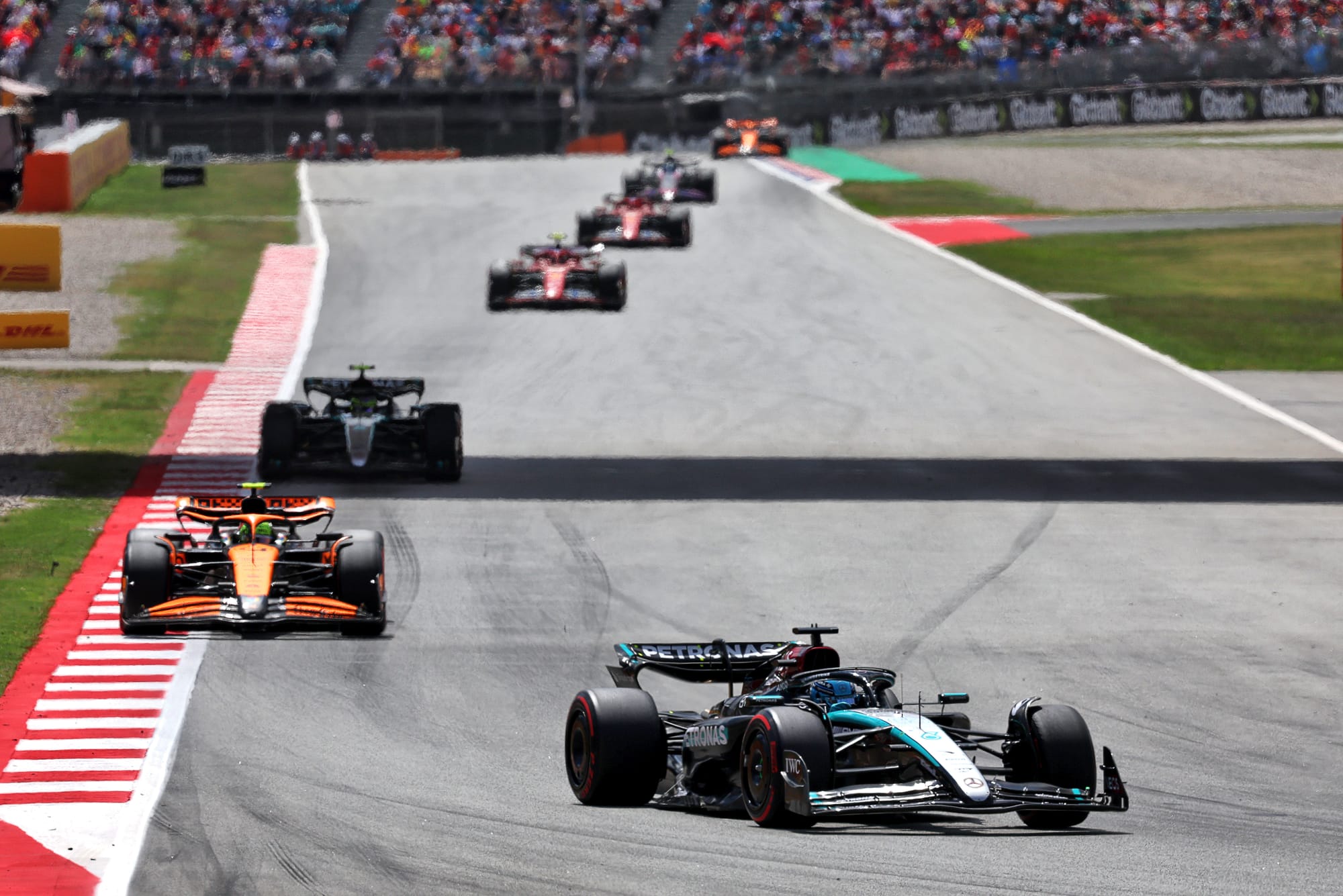
If Norris had only fallen behind Verstappen at the start, we'd have had a very different race even with his scruffy getaway.
But it was the presence of George Russell running between Verstappen and everyone else in the first stint that decided this race.
Russell didn't have the pace to be a factor in the battle at the front, but he was quick enough to not be an easy pass for Norris.
That allowed Verstappen to start managing his pace once he'd built a small gap, and from there he had just enough control to deal with whatever Norris and McLaren could throw at him later on.
Russell running second created a false impression in the first stint that the Verstappen/Red Bull combination had this one covered with relative ease in race trim on a conventional circuit.
McLaren's execution didn't match Red Bull's
Samarth Kanal
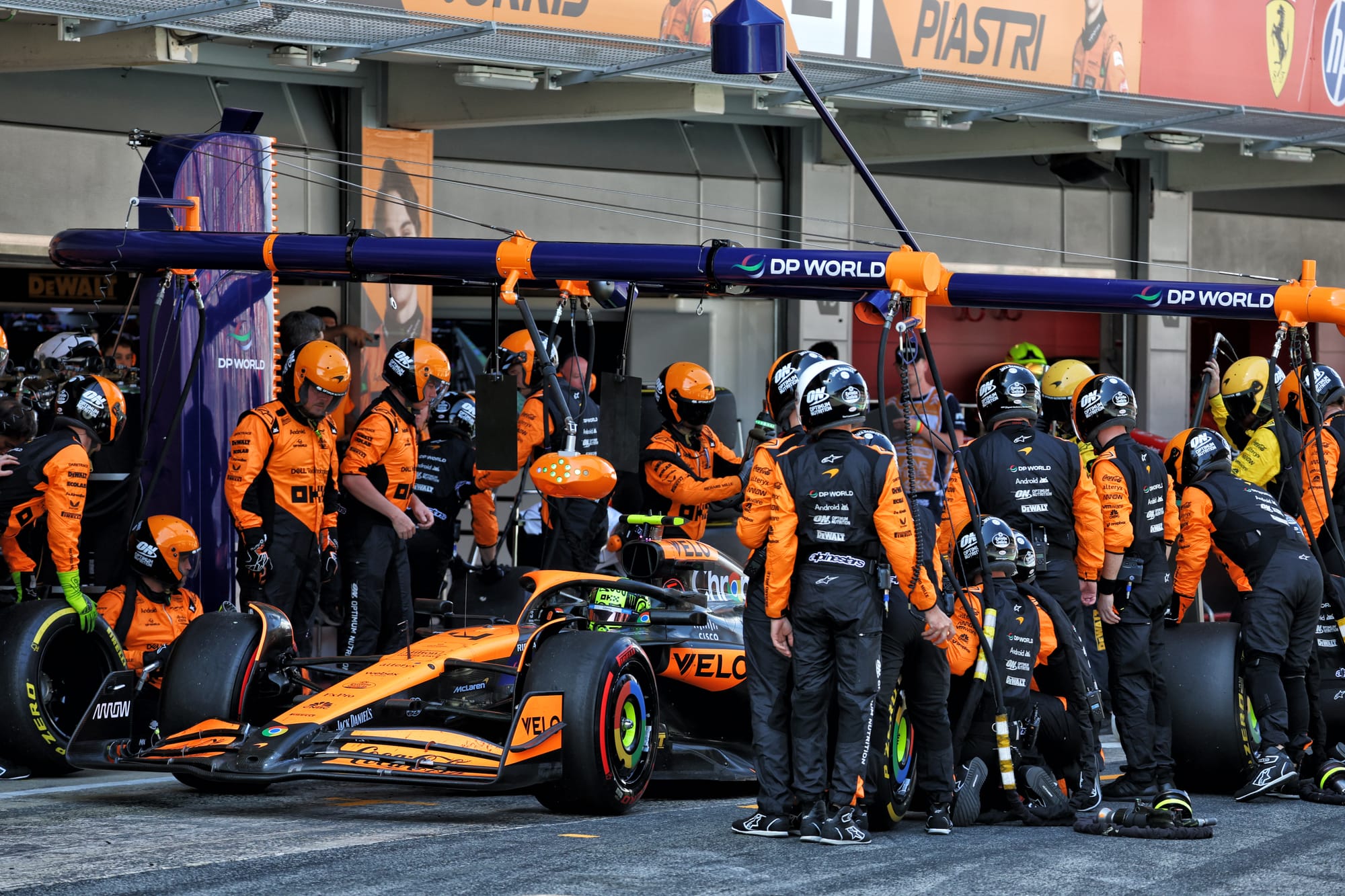
The difference between Verstappen and Norris was just 2.219 seconds on Sunday and part of that can be explained by Norris’s second-stint battle for second place with Russell. McLaren couldn’t control what Norris’s on-track rivals would do, but it could control the amount of time it lost during pitstops on Sunday.
Verstappen’s first pitstop lasted just 1.9s while Norris’s first stop lasted 2.4s. Verstappen’s second pitstop meanwhile lasted 2.8s but Norris’s second top lasted 3.6s. He therefore lost 1.3s to Verstappen in pitstops alone.
Fine margins, but that could have put Norris within DRS range of Verstappen and given him a better chance of victory using the offset strategy - one that seldom works in F1 given it needs to be pulled off without any errors.
McLaren didn’t execute those pitstops quickly enough, and Norris lost further time at the start when he went wheel to wheel with Verstappen through Turn 1 and Russell snuck into the lead.
Red Bull took 29 points on Sunday to (slightly) stretch its constructors’ championship lead. While it might not be as dominant on track as it used to be, Red Bull still holds a clear advantage in the pits.
Further evidence of Verstappen brilliance
Josh Suttill
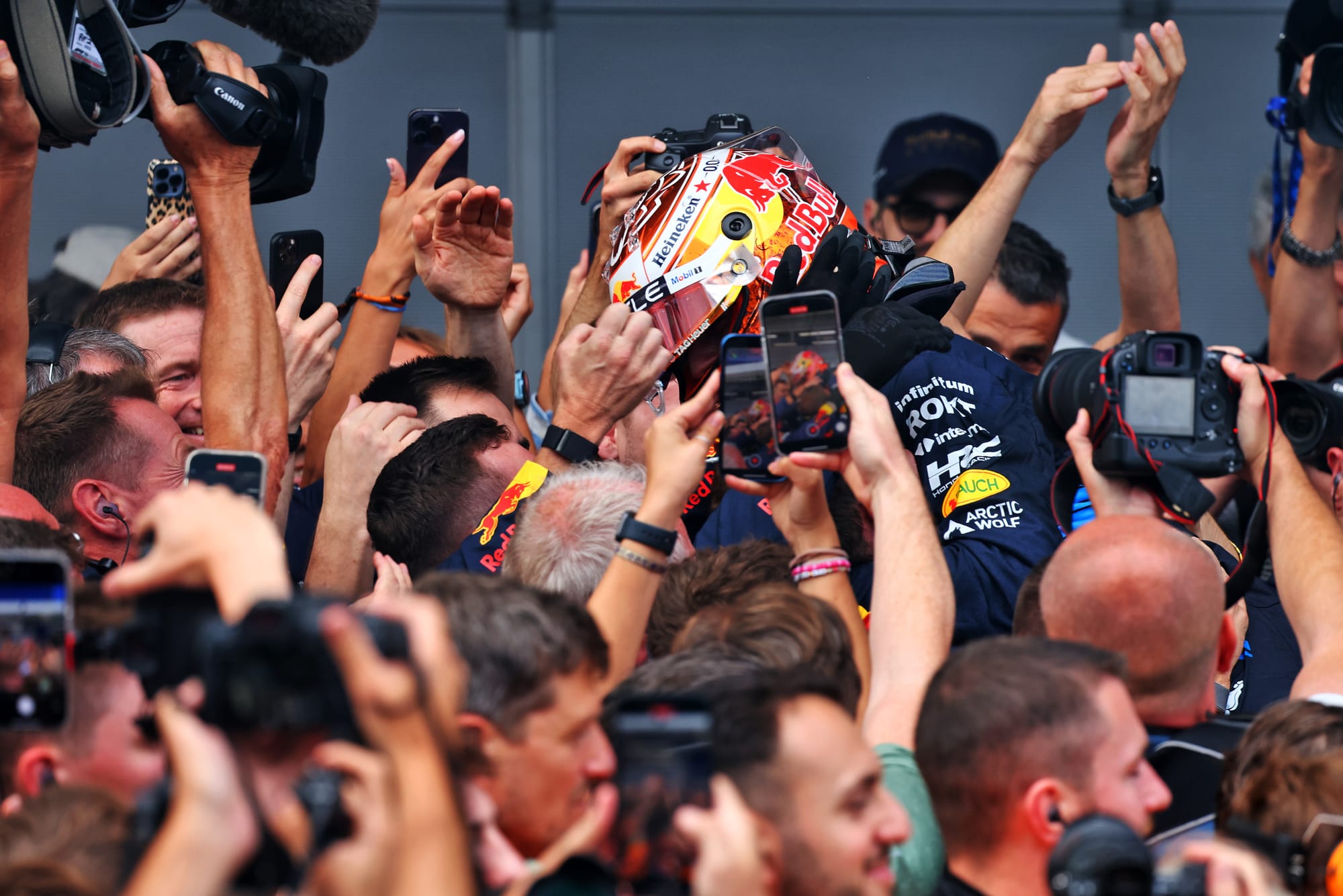
This was yet further proof of the high level Verstappen continues to operate at and how you have to be nearly note-perfect to beat him in races like the Spanish GP.
Verstappen didn't waste a second taking advantage of Norris's slow launch and then crucially cleared George Russell almost immediately.
That put Verstappen in control of the race and meant he could manage his tyres and push them when needed.
He's not error-free - we saw that when he damaged his car with a trip across the chicane in Miami - but those mistakes are so few and far between there are barely any chinks in his armour.
Just look at how the second Red Bull has been performing since the team lost its dominant edge.
Can you imagine how weak the RB20 would have looked without Verstappen? It would have gone from race winner to scrapping with Alpines for minor points.
Instead, Verstappen's just made the difference in taking back-to-back wins against marginally faster cars.
McLaren should be sad - but not for losing
Valentin Khorounzhiy
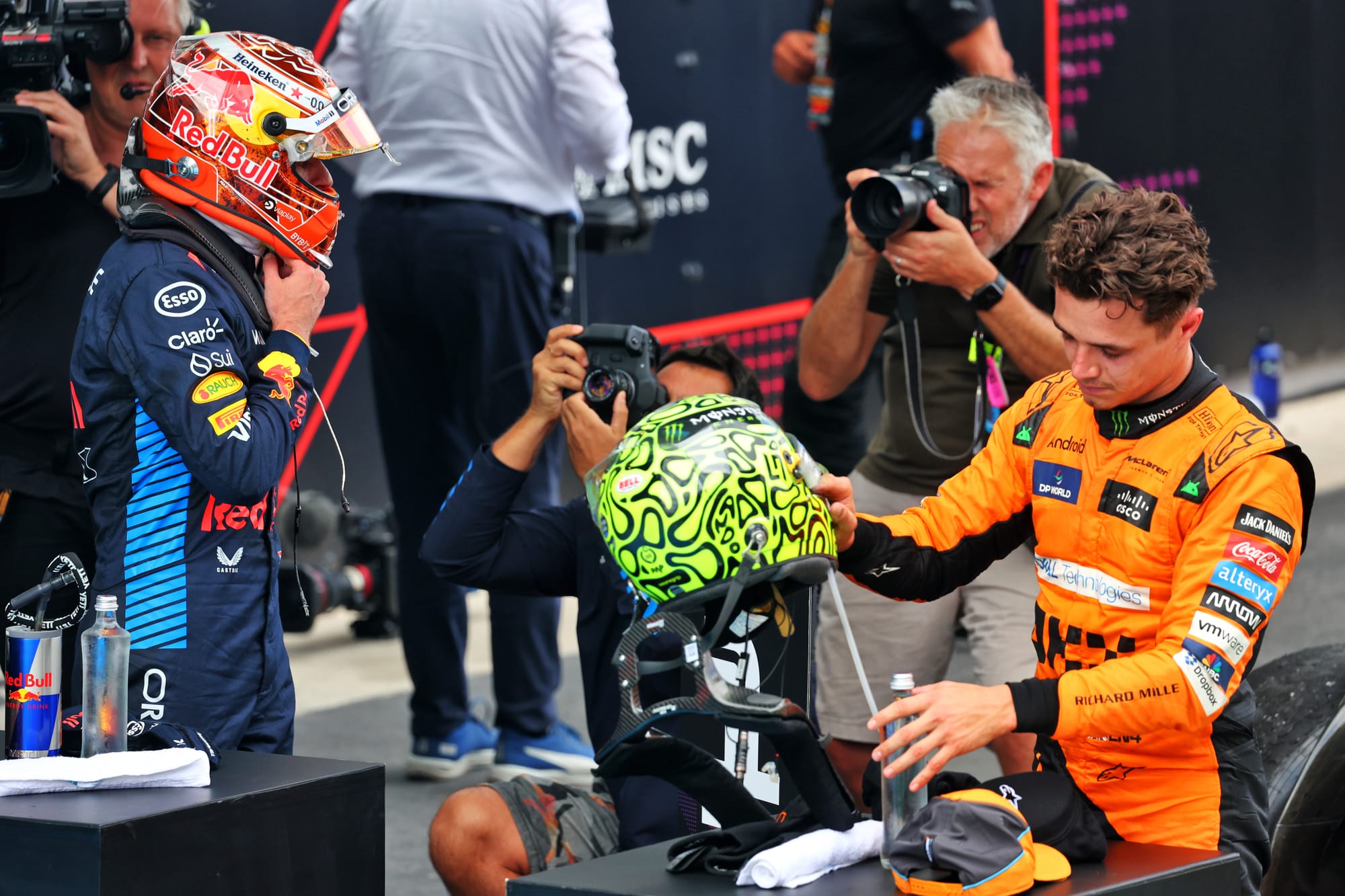
In the grand scheme of things for McLaren, it really shouldn't matter too much whether Norris was first or second - as strange as that feels to say.
Winning grands prix is good, obviously, duh. But the MCL60 is now a good enough car, a rounded enough car, to the point where sniping for individual wins isn't the end-all and be-all. It is, increasingly, a potential title-challenging car.
McLaren's progress during this F1 rules period has been startling, even against the backdrop of the inevitable overall convergence. It is the momentum team, and it has a stellar line-up, even if Oscar Piastri largely laid an egg this weekend.
But it's already too far back in both drivers' and constructors' standings this year, so its only real chance to make its development burst truly count is next year.
This is not really the place to pass judgment on whether F1's switch to the 2026 regulations is well-timed given the clear convergence and the sudden good racing - for the racing also could be better.
But from McLaren's standpoint, even if being a Mercedes customer may well serve it well in 2026 and could even perhaps put it ahead of Red Bull with its new engine, I'm sure it would gladly sign up for an extra year or two of these rules on current evidence.


